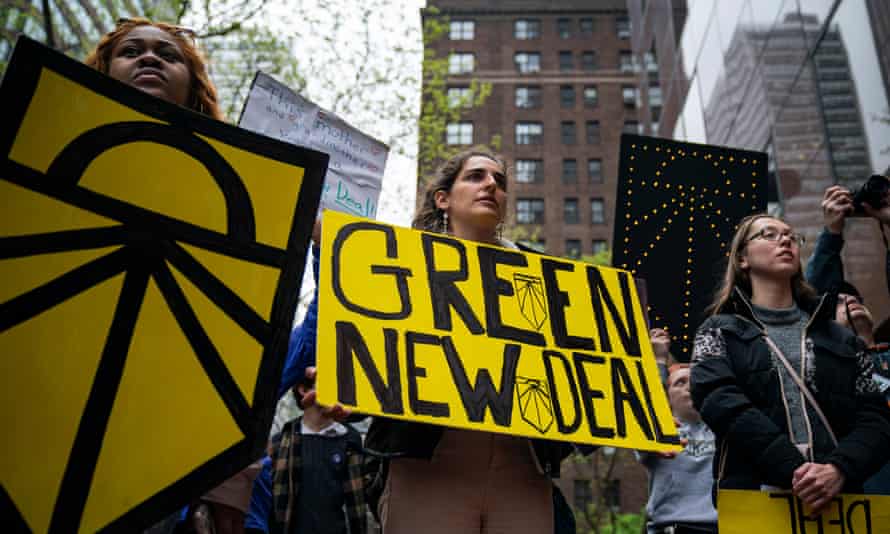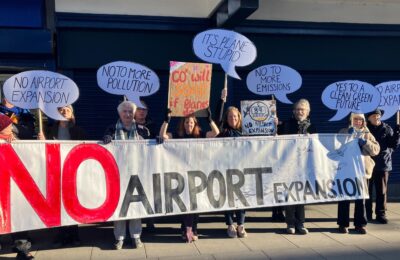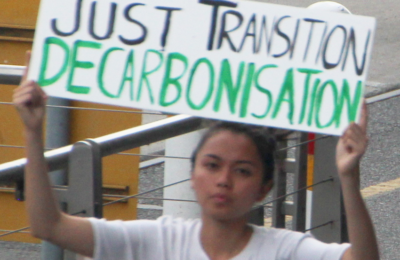
An interesting article by Adam Tooze in the Guardian contrasts Corbyn’s radicalism with Starmers caution and watering down of Labour’s radical environmental policy.
‘The bitter irony of 2020 was that just as the political hopes of the left were dashed, the strategic analysis of the Green New Deal was spectacularly vindicated.’
The past 18 months saw political defeats for the left on both sides of the Atlantic. Jeremy Corbyn’s leadership of the Labour party came to an end after a resounding Conservative victory. The Bernie Sanders campaign went down at the hands of the Democrat establishment. And yet the bitter irony of 2020 was that just as the political hopes of the left were dashed, the strategic analysis of the Green New Deal – the centrepiece of its policy vision – was spectacularly vindicated.
The Green New Deal demanded that social and economic policy should be oriented towards the immediate planetary challenge of the environment. Its proponents, groups such as the Sunrise Movement, put a “just transition” front and centre; this means fairly managing the social harms such as unemployment that would arise from an accelerated shift away from fossil fuels. Then, as if on cue, the coronavirus arrived, and delivered a devastating “inequality shock” forcing even the likes of the Financial Times to talk about a new social contract.
The Green New Deal’s politics emerged from a recognition of the fact that there was unfinished business from the financial crisis of 2008; climate activists warned that we were harnessed to a dangerous financial flywheel and demanded that finance be turned in a constructive direction. The thinking was based on the notion that the status quo was the one thing that we could not have: the events of 2020 confirmed precisely how dangerous and precarious our reality is.
In the US, this feeling was compounded by Donald Trump’s terrifying antics and the killing of George Floyd. Even Joe Biden, as centrist as it gets, has been moved to speak of four converging crises – Covid-19, the economy, racial justice and the climate. Nor is this merely a rhetorical framing. The Biden administration has assimilated a large part of the Sanders agenda. The double stimulus programmes planned for 2021 are unprecedented. The administration is clearly serious about climate. It is forced, by the balance of power inside the Democratic party, to put race and environmental justice at the heart of its policies.
This assimilation of the left programme into the centre is made possible by victory. It is based on a confidence that a broad-church progressive coalition can win a majority in the US. Furthermore, the Republicans have done the Democrats the favour of vacating the middle ground almost entirely.
The contrast to the UK is painful. Reeling from its bitter defeat, languishing in the opinion polls, Keir Starmer’s Labour party diagnoses a polycrisis too, but it consists not of issues of global significance, but of Brexit, the collapse of the “red wall” and the question of Scotland. Questions of identity overshadow everything. Rather than seriously questioning what the nation might be, as the combination of Trump and Black Lives Matter is forcing liberal America to do, Labour appears to be content with trying to reclaim the union flag from the Conservative party.
Starmer’s long-awaited “big speech” last month was an exercise in sophomoric national cliche. He managed to be sentimental even in the passages about British business. References to the blitz and 1945 formed the anchor. The climate crisis got a single line, with one other passing reference. The Mais lecture by the shadow chancellor, in January, was weightier. Unlike Starmer, Anneliese Dodds did in fact seriously discuss the climate emergency, but it is no longer the organising framework that it once was, no longer the pacesetter, the imperative to action. The only thing that matters is to convince some key voters that Labour is responsible enough to be trusted as a steward of the economy.
Though “acceleration” was one of Dodds’s key terms – a reference to the way the pandemic has amplified pre-existing trends such as flexible working and digitalisation – she managed nevertheless to offer a curiously muted vision of the huge challenges facing the UK and the world economy.
No doubt the pollsters have fine-tuned these messages with target segments of the electorate. But if you do not belong to that audience, if you understand your identity to be complex and multiple, if you have ever been on the bitter end of the politics of patriotism, then flag-waving repels. If a little thought about society and politics has taught you to regard “common sense” as the most dangerous of snares, you cannot but worry about a party so desperate to please the Daily Mail.
Labour’s retreat from radicalism means that the initiative belongs to the Johnson government. Having done Brexit, it can look to the future. It leads even on climate. After destroying the miners union in the 1980s, the Tories may end up presiding over historic decarbonisation. After vaccines they will claim Britain’s hosting of Cop26 as a victory too. Ahead of the 2024 election, the Tories will no doubt pivot to “fiscal responsibility”, but as the budget makes clear, they are spending as the situation demands. Labour is left to harp on value for money.
The independent Bank of England created by Gordon Brown is now merrily buying bonds to finance Rishi Sunak’s spending. Whereas experts aligned with the Labour party were once leading a global conversation about redefining central bank independence in a progressive direction, the shadow chancellor now proposes to treat its independence as inviolable. Not so the Tory chancellor, who has added climate to the bank’s mandate.
No doubt the Corbynite left was too in love with its own radicalism. But the Green New Deal was not radicalism for its own sake. It was radical because reality demanded it. Faced with the 2008 global financial crisis and its aftermath, the world historic presence of China, Trump, the escalating climate crisis, and an unprecedented global pandemic, what more is needed to demonstrate this point? A politics that does not want to mobilise around these challenges, which prefers to deal in patriotic pastiche, forfeits any claim to be progressive.
The disinhibited politics of the new global right recognises this radical reality, though in the form of fantasy, denial and conspiracy. Global capital is swinging full tilt behind its own version of a Green New Deal. Hundreds of billions is now sloshing into renewable energy. The restructuring and job losses about to happen in the global automotive industry will put every previous reorganisation in the shade.
In the age of the great acceleration, Corbyn’s politics at least rose to the challenge of recognising that the future would be different. Labour’s new look – the Little Britain to come – promises a nostalgic road back to the future. It is, in reality, a dangerous dead end.
- Adam Tooze is a professor of history at Columbia University


